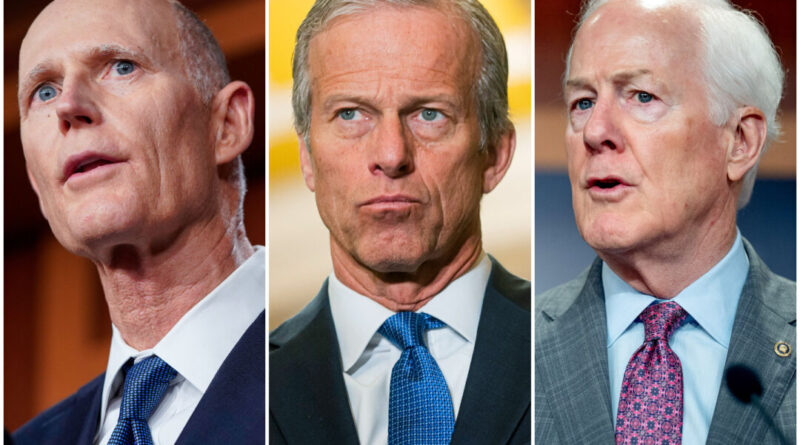Differences Between Senate Majority Leader Contenders Largely Center Around Process, Rather than Policy
Significant changes may be on the horizon for the management of the upper chamber of Congress when the 119th Congress meets on Jan. 3, 2025.
News Analysis
Experts in Washington are buzzing about the upcoming race for Senate majority leader, which features seasoned GOP establishment figures like Sen. John Thune of South Dakota and Sen. John Cornyn of Texas, up against the disruptive force of Florida conservative Sen. Rick Scott.
Despite the perceived differences between these contenders, an evaluation by the Conservative Political Action Committee (CPAC) reveals that their voting records on major issues are remarkably similar.
The competition for the powerful position of majority leader in the Senate is fierce, with control of the Senate leaning towards Republicans with a 53–47 majority in the 119th Congress.
With Sen. Mitch McConnell stepping down from his long-held leadership role, the stage is set for a new leader to emerge in the upper chamber.
Thune, the youngest candidate at 63, has a solid track record of voting in line with conservative values. Cornyn, 72, also boasts a high CPAC rating and a history of strong support from voters. On the other hand, Scott, 71, brings a fresh perspective to the race with slightly higher conservative ratings compared to his competitors.
While their voting histories align on many key issues, these senators differ in their views on the procedural aspects of the majority leader position.
Scott has called for term limits for the position to ensure a rotation of leadership and fresh ideas, while Cornyn has pledged to prioritize committee work and transparency in the legislative process.
All three candidates have expressed their commitment to advancing President Trump’s legislative priorities, although Trump has not formally endorsed any of them yet.
The race for Senate majority leader will soon culminate in a decision by Senate Republicans, with public endorsements already being thrown behind the contenders. The days leading up to the 119th Congress promise to be a time of change and redefinition for the upper chamber.

